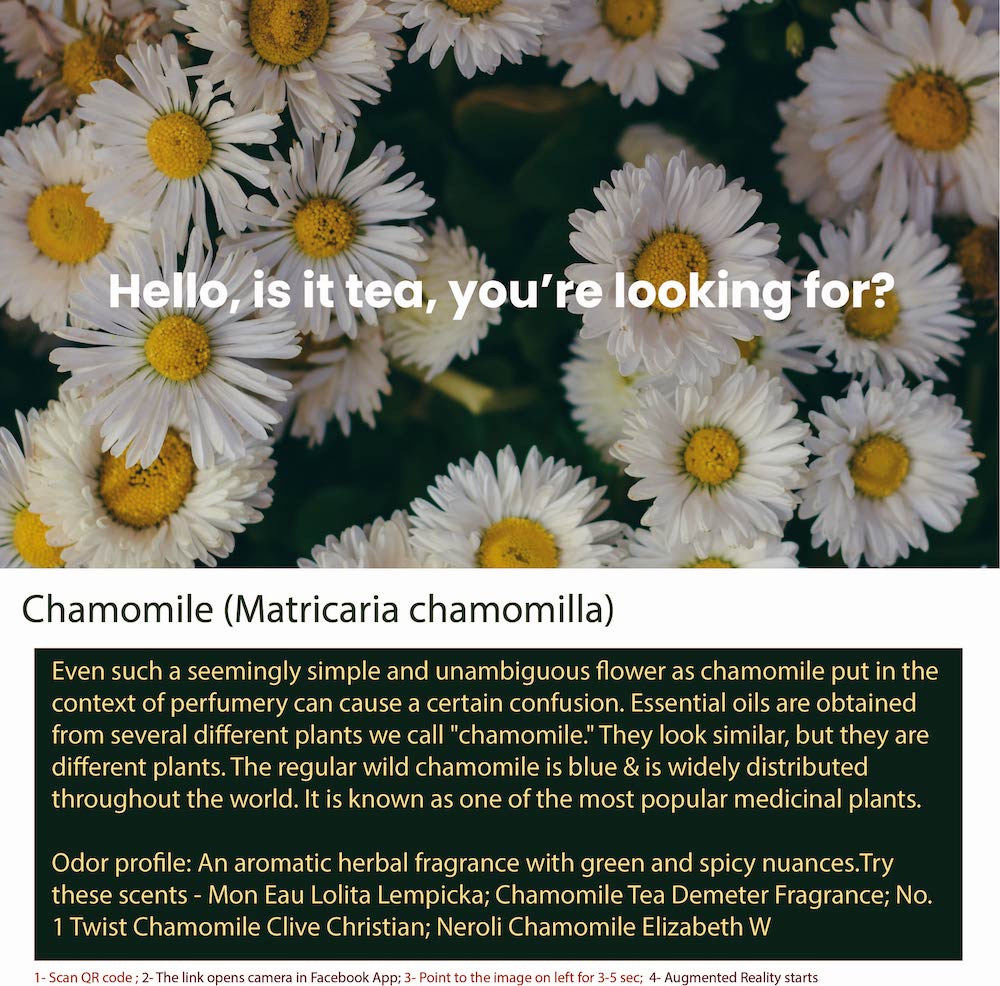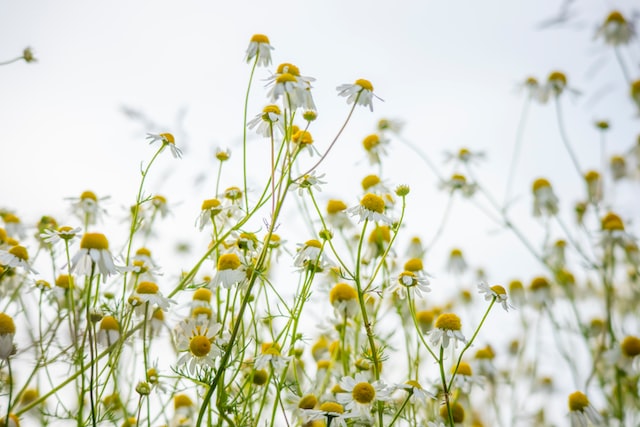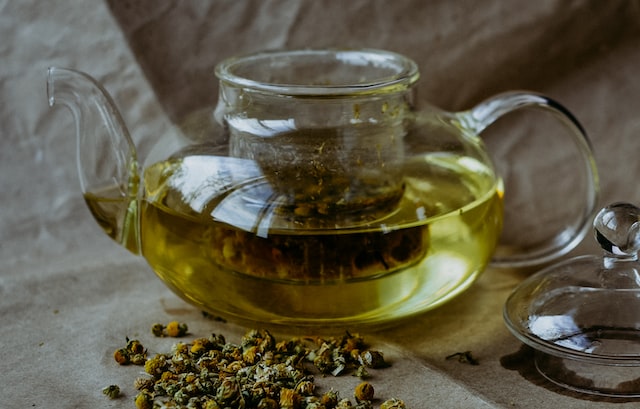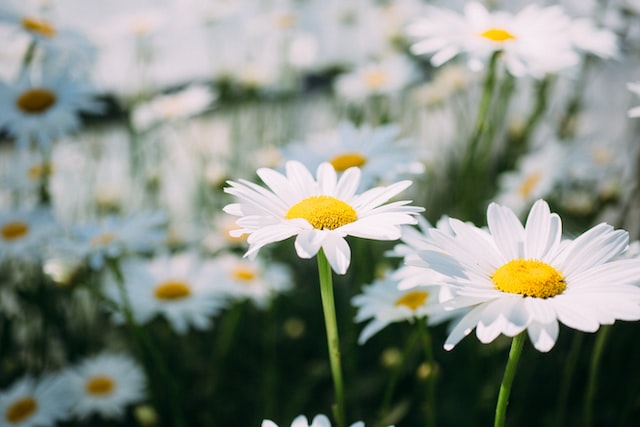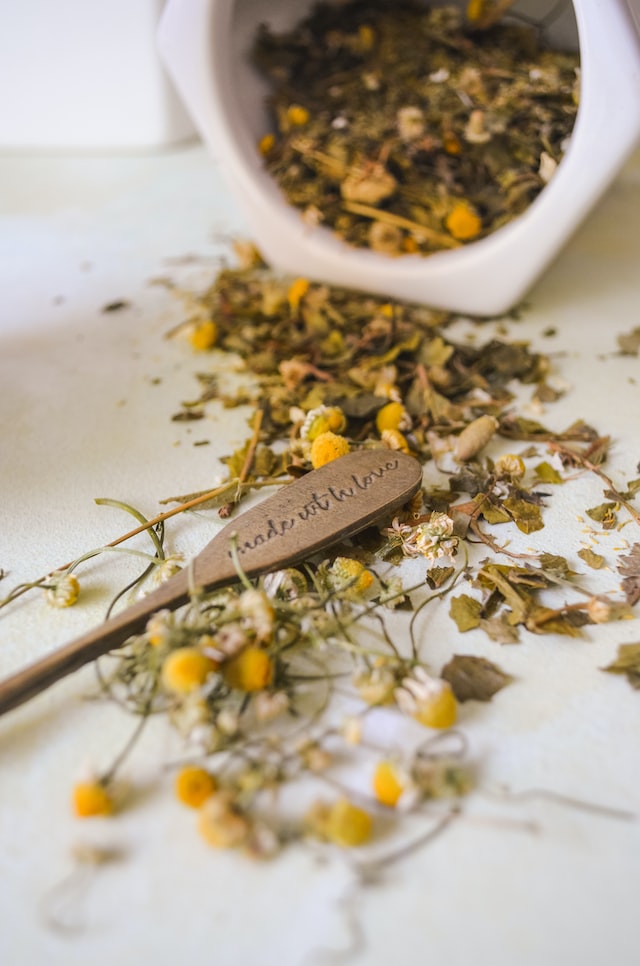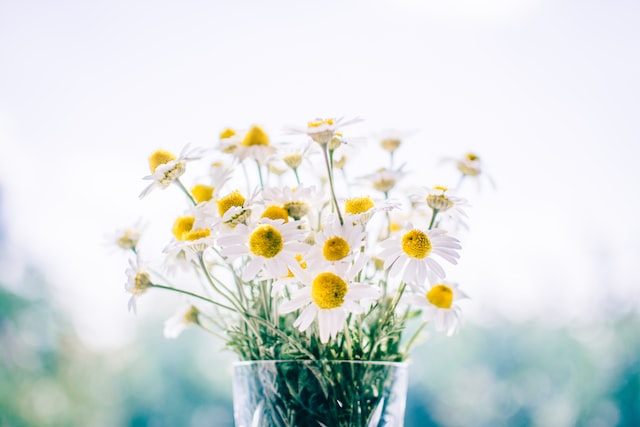Premium Floral Fragrance for Women
Chamomile: The Soothing Herb of Many Facets - From Perfumes to Fun Crazy Facts
Chamomile, with its gentle and soothing nature, is a remarkable herb that has been cherished for centuries. It has found its place in a wide array of domains, including perfumes, fragrance, therapeutic oils, food, medicinal systems, history, and even fun crazy facts. This article explores the diverse facets of chamomile, uncovering its numerous applications and intriguing characteristics that have captivated people throughout history.
1. Chamomile in Perfumes and Fragrance
Chamomile's delicate floral aroma has inspired perfumers to incorporate it into fragrances, providing a touch of serenity and tranquility. While not a primary note in mainstream perfumes, chamomile's scent is often used to enhance the overall fragrance composition. Its soothing and calming properties make it a popular choice in aromatherapy and wellness-inspired scents.
2. Chamomile in Therapeutic Oils
Chamomile essential oil, extracted from the flowers of the chamomile plant, is renowned for its therapeutic properties. It is a well-known ingredient in aromatherapy due to its potential to promote relaxation and reduce stress and anxiety. Chamomile oil is also used topically in skincare products for its soothing and anti-inflammatory effects on the skin.
3. Chamomile in Culinary Delights
Chamomile flowers are occasionally used in culinary preparations to add a subtle floral flavor to certain dishes and beverages. Chamomile tea, made from the dried flowers, is particularly popular for its soothing and calming properties. Additionally, chamomile is used in herbal infusions and tinctures, adding its gentle touch to various culinary creations.
4. Chamomile in Medicinal Systems
Chamomile has a long history of use in traditional medicine for its potential health benefits. It has been used as a natural remedy for various ailments, including digestive issues, insomnia, and skin irritations. The soothing and anti-inflammatory properties of chamomile have made it a cherished herb in natural healing practices worldwide.
5. Historical Significance of Chamomile
Chamomile's history can be traced back to ancient civilizations, where it was revered for its medicinal and spiritual significance. The ancient Egyptians used chamomile as an offering to the sun god Ra, while the ancient Greeks and Romans used it for medicinal purposes and in perfumes.
6. Fun and Crazy Facts about Chamomile
a. Chamomile Etymology: The name "chamomile" is derived from the Greek words "khamai" (on the ground) and "mēlon" (apple) due to its characteristic apple-like fragrance.
b. Chamomile and Relaxation: Chamomile tea is a popular beverage consumed before bedtime for its calming effects, promoting relaxation and better sleep.
c. Chamomile in Skin Care: Chamomile is a common ingredient in skincare products, such as creams and lotions, due to its soothing and anti-inflammatory properties for sensitive skin.
d. Chamomile's Cosmic Connections: In astrology and folklore, chamomile is associated with the sun, embodying warmth, healing, and positive energy.
e. Chamomile in Beekeeping: Chamomile flowers are a favorite of bees, making them a welcome addition to gardens and beneficial for pollination.
Chamomile, with its gentle demeanor and multifaceted applications, stands as a soothing herb that has touched numerous aspects of human life. From its contributions to perfumes and therapeutic oils to its potential health benefits and historical significance, chamomile continues to captivate and inspire. Whether it's providing a fragrant touch to fragrances or promoting relaxation and well-being in aromatherapy, chamomile's allure lies in its ability to evoke a sense of calm and tranquility. As we reflect on chamomile's enduring presence throughout history and its intriguing qualities, it stands as a testament to the power of nature and its role in enhancing our physical, emotional, and spiritual well-being.
Chamomile, with its gentle and soothing nature, is a remarkable herb that has been cherished for centuries. It has found its place in a wide array of domains, including perfumes, fragrance, therapeutic oils, food, medicinal systems, history, and even fun crazy facts. This article explores the diverse facets of chamomile, uncovering its numerous applications and intriguing characteristics that have captivated people throughout history.
1. Chamomile in Perfumes and Fragrance
Chamomile's delicate floral aroma has inspired perfumers to incorporate it into fragrances, providing a touch of serenity and tranquility. While not a primary note in mainstream perfumes, chamomile's scent is often used to enhance the overall fragrance composition. Its soothing and calming properties make it a popular choice in aromatherapy and wellness-inspired scents.
2. Chamomile in Therapeutic Oils
Chamomile essential oil, extracted from the flowers of the chamomile plant, is renowned for its therapeutic properties. It is a well-known ingredient in aromatherapy due to its potential to promote relaxation and reduce stress and anxiety. Chamomile oil is also used topically in skincare products for its soothing and anti-inflammatory effects on the skin.
3. Chamomile in Culinary Delights
Chamomile flowers are occasionally used in culinary preparations to add a subtle floral flavor to certain dishes and beverages. Chamomile tea, made from the dried flowers, is particularly popular for its soothing and calming properties. Additionally, chamomile is used in herbal infusions and tinctures, adding its gentle touch to various culinary creations.
4. Chamomile in Medicinal Systems
Chamomile has a long history of use in traditional medicine for its potential health benefits. It has been used as a natural remedy for various ailments, including digestive issues, insomnia, and skin irritations. The soothing and anti-inflammatory properties of chamomile have made it a cherished herb in natural healing practices worldwide.
5. Historical Significance of Chamomile
Chamomile's history can be traced back to ancient civilizations, where it was revered for its medicinal and spiritual significance. The ancient Egyptians used chamomile as an offering to the sun god Ra, while the ancient Greeks and Romans used it for medicinal purposes and in perfumes.
6. Fun and Crazy Facts about Chamomile
a. Chamomile Etymology: The name "chamomile" is derived from the Greek words "khamai" (on the ground) and "mēlon" (apple) due to its characteristic apple-like fragrance.
b. Chamomile and Relaxation: Chamomile tea is a popular beverage consumed before bedtime for its calming effects, promoting relaxation and better sleep.
c. Chamomile in Skin Care: Chamomile is a common ingredient in skincare products, such as creams and lotions, due to its soothing and anti-inflammatory properties for sensitive skin.
d. Chamomile's Cosmic Connections: In astrology and folklore, chamomile is associated with the sun, embodying warmth, healing, and positive energy.
e. Chamomile in Beekeeping: Chamomile flowers are a favorite of bees, making them a welcome addition to gardens and beneficial for pollination.
Chamomile, with its gentle demeanor and multifaceted applications, stands as a soothing herb that has touched numerous aspects of human life. From its contributions to perfumes and therapeutic oils to its potential health benefits and historical significance, chamomile continues to captivate and inspire. Whether it's providing a fragrant touch to fragrances or promoting relaxation and well-being in aromatherapy, chamomile's allure lies in its ability to evoke a sense of calm and tranquility. As we reflect on chamomile's enduring presence throughout history and its intriguing qualities, it stands as a testament to the power of nature and its role in enhancing our physical, emotional, and spiritual well-being.
To experience augmented reality, please open the Facebook-app using QR code and point to the image below
Discover the Power of Chamomile Flower Extract
Chamomile is a plant from the daisy family, known for its calming and soothing properties. The two most commonly used types of chamomile are German chamomile (Matricaria chamomilla) and Roman chamomile (Chamaemelum nobile). The flowers of the plant are dried and used to make tea, which is often consumed to help with insomnia, anxiety, and other conditions. Chamomile is also used in traditional medicine as a mild sedative, anti-inflammatory and to treat digestive disorders.
Unwind and Relax with Chamomile Scent
Chamomile, also known as Matricaria chamomilla or Matricaria recutita, is a flowering plant that has been used for medicinal and cosmetic purposes for centuries. There are a few myths and legends associated with chamomile, but the most well-known is probably the Roman myth that chamomile flowers would only bloom when the sun was shining, and would close up at night or when it was overcast.
Another myth is that chamomile is a herb of the sun and it is believed that if you place a chamomile flower under your pillow it will bring good dreams and help you sleep.
Chamomile is also believed to have healing properties and it is used as a tea to help with insomnia, anxiety, and other ailments.
It's also used in beauty industry for skin care, hair care and aromatherapy.
The history of chamomile use can be traced back to ancient Egypt, where it was used as a remedy for fever, and to ancient Greece, where it was used to treat menstrual cramps and other ailments. The plant is also mentioned in the works of the Roman naturalist Pliny the Elder, who wrote about its medicinal properties. Throughout history, chamomile has been used to treat a wide range of ailments, including anxiety, insomnia, and skin conditions.
Another myth is that chamomile is a herb of the sun and it is believed that if you place a chamomile flower under your pillow it will bring good dreams and help you sleep.
Chamomile is also believed to have healing properties and it is used as a tea to help with insomnia, anxiety, and other ailments.
It's also used in beauty industry for skin care, hair care and aromatherapy.
The history of chamomile use can be traced back to ancient Egypt, where it was used as a remedy for fever, and to ancient Greece, where it was used to treat menstrual cramps and other ailments. The plant is also mentioned in the works of the Roman naturalist Pliny the Elder, who wrote about its medicinal properties. Throughout history, chamomile has been used to treat a wide range of ailments, including anxiety, insomnia, and skin conditions.
Crafting the Perfect Women's Perfume
Chamomile essential oil is extracted from the flowers of the chamomile plant through steam distillation. The oil is a clear, pale blue color and has a strong, sweet, and apple-like aroma.
Chamomile essential oil is known for its calming and soothing properties, making it a popular choice for use in aromatherapy and massage. It is also commonly used to help alleviate anxiety and stress, to promote sleep, and to soothe irritated skin.
In addition, chamomile essential oil is also believed to have anti-inflammatory, antispasmodic, and analgesic properties, making it useful for treating conditions such as muscle spasms, menstrual cramps, and headaches.
It is also used as an ingredient in skin care products and hair care products to soothe and moisturize the skin, and to promote healthy hair growth.
It is important to note that chamomile essential oil should be used with caution, as it can cause allergic reactions in some people. It should also be diluted before use, and should not be used during pregnancy or breastfeeding. It's recommended to consult a healthcare professional before using chamomile essential oil.
Chamomile essential oil is known for its calming and soothing properties, making it a popular choice for use in aromatherapy and massage. It is also commonly used to help alleviate anxiety and stress, to promote sleep, and to soothe irritated skin.
In addition, chamomile essential oil is also believed to have anti-inflammatory, antispasmodic, and analgesic properties, making it useful for treating conditions such as muscle spasms, menstrual cramps, and headaches.
It is also used as an ingredient in skin care products and hair care products to soothe and moisturize the skin, and to promote healthy hair growth.
It is important to note that chamomile essential oil should be used with caution, as it can cause allergic reactions in some people. It should also be diluted before use, and should not be used during pregnancy or breastfeeding. It's recommended to consult a healthcare professional before using chamomile essential oil.
Infuse Tranquility with Chamomile Perfume
There are several myths and legends associated with chamomile. Here are a few examples:
- Roman myth: Chamomile flowers were believed to only bloom when the sun was shining, and would close up at night or when it was overcast.
- Folklore: Chamomile is a herb of the sun and it is believed that if you place a chamomile flower under your pillow it will bring good dreams and help you sleep.
- Healing properties: Chamomile is believed to have healing properties and is used as a tea to help with insomnia, anxiety, and other ailments.
- Protection: Chamomile is believed to have protective properties and is used in rituals and spells to protect against harm and bring good luck.
- Love spell: Chamomile is believed to have love properties and is used in love spells and rituals to attract love and affection.
Calming and Soothing Aroma
Chamomile is a popular herb in traditional Chinese medicine (TCM) and is often consumed as a tea. The herb is believed to have several health benefits, including:
- Calming and soothing: Chamomile is believed to have a calming and soothing effect on the body and mind, and is often used to help alleviate stress, anxiety, and insomnia.
- Anti-inflammatory: Chamomile is believed to have anti-inflammatory properties and is used to help reduce inflammation in the body, which can help alleviate pain and discomfort.
- Digestive health: Chamomile is believed to help improve digestive health and is used to help relieve symptoms of indigestion, bloating, and gas.
- Skin health: Chamomile is believed to have skin-healing properties and is used to help soothe irritated skin and reduce inflammation.
- Anti-cancer: Chamomile is believed to have anti-cancer properties and studies shows that it may help reduce the risk of certain types of cancer.
Join Scentopia, Sentosa's latest tourist attraction wonderful orchid scent crafting, fragrance tour, bridal shower or corporate team building which includes perfume making onsite and offsite, beach activities and more. We also serve primary school learning journey, secondary students and pupil on industrial excursions. Know more about our orchids perfume bar or therapeutic orchid scents and other wellness aromas. Conatct Perfume workshop or book a scent crafting session here.

